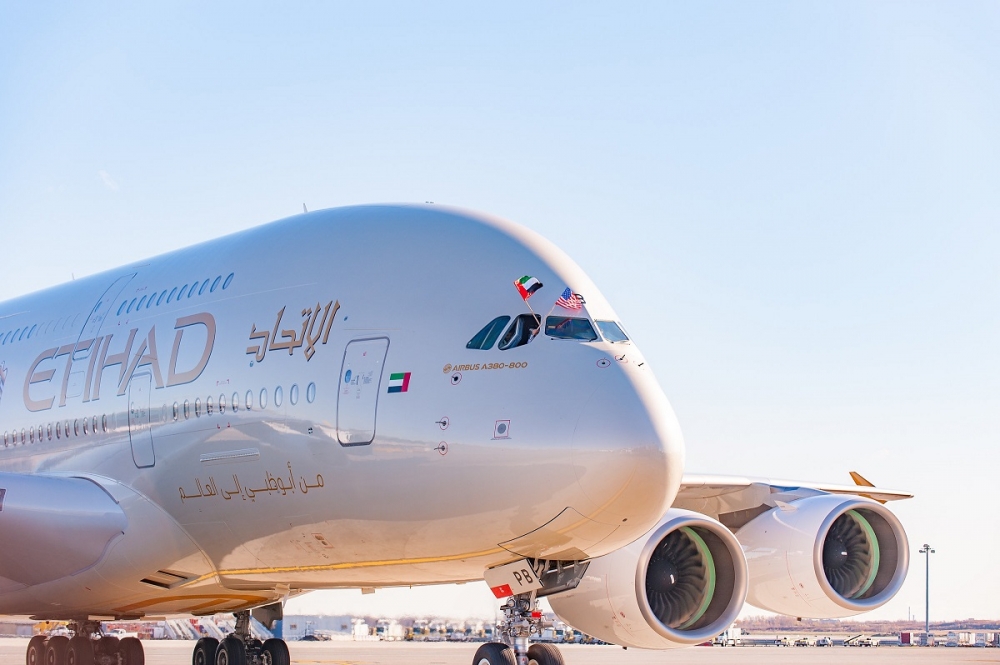Etihad posts another massive loss in 2018
14 March, 2019
3 min read
By joining our newsletter, you agree to our Privacy Policy


Financially-embattled Gulf carrier Etihad Airways lost another $US1.28 billion in 2018 but this was lower than the $US1.52 billion it lost in 2017.
It was the third year of losses greater than $US1 billion but the airline hailed a 15 percent improvement in core operating performance as a sign its transformation program was working.
The 2017 loss came as it faced significant fuel cost increases, the fallout of its failed expansion plans involving Alitalia and airberlin and investment in its restructuring program.
In 2018, it managed to raise average fares to help offset what it described as challenging market conditions and higher fuel prices.
It said a 4 percent increase in yields was driven largely by capacity discipline, network and fleet optimization and growing market share in premium and point-to-point markets.
Passenger capacity was down by 4 percent but the number of passengers also fell from 18.6m to 17.8m and the seat factor dropped 2.1 percentage points to 76.4 percent.
Overall revenue fell from $US6 billion in 2017 to $5.9 billion in 2018 but passenger revenue remained unchanged at $US5 billion.
The airline is now in the second year of its transformation program and said it reduced total costs by $US416m to $US6.9 billion.
“In 2018, we continued to forge ahead with our transformation journey by streamlining our cost base, improving our cash-flow and strengthening our balance sheet,’’ group chief executive Tony Douglas said in a statement.
“Our transformation is instilling a renewed sense of confidence in our customers, our partners and our people.’’
Etihad announced in February it was concentrating on the "efficient rationalization" of its fleet by reducing the number of widebody aircraft it would take from Airbus and Boeing.
READ: Etihad fleet rationalization continues as it cuts widebody orders.
It took delivery of eight new aircraft during 2018: three Boeing 787-9s, four Boeing 787-10s and a Boeing 777-200 freighter.
This brought its fleet count to 106, down from 115 in 2017, with an average age of 5.7 years.
The Abu Dhabi-based carrier also cut a number of unprofitable routes, including Tehran, Jaipur, Entebbe, Dallas/Fort Worth, Ho Chi Minh City, Dhaka, Dar es Salaam, Edinburgh and Perth.
Added to the network were Baku and Barcelona and there were frequency increases to destinations such as Toronto, Amman and Rome.
Product developments included its “Choose Well” inflight retail campaign and new seating with streaming technology on its short-haul Airbus A320 and A321 fleets.
Next Article
2 min read
Qantas triples profit but misses mark

Get the latest news and updates straight to your inbox
No spam, no hassle, no fuss, just airline news direct to you.
By joining our newsletter, you agree to our Privacy Policy
Find us on social media
Comments
No comments yet, be the first to write one.
